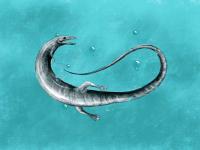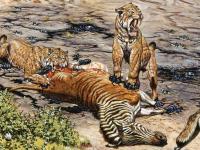Russia To BRING BACK Extinct Woolly Mammoth With Jurassic Park-Style CLONING Facility

RUSSIA is planning a major new £4.5 million cloning facility aiming to bring back to life the extinct woolly mammoth and rhinoceros as well as other long-gone species. Plans for the new Jurassic Park-style “world class paleo-genetic scientific centre” in the world’s coldest city Yakutsk will be unveiled next month when Vladimir Putin hosts a major investment forum.
The cloning laboratories – some sunk deep in the permafrost soil – aim to extend research by Russian scientists who are already working closely with South Korean specialists hoping to restore extinct species.
Yakutsk is capital of diamond-rich Sakha Republic, also known as Yakutia, where 80 percent of finds of samples of Pleistocene and Holocene animals with preserved soft tissues have been made.
The scheme of the new centre will be unveiled at the 4th Eastern Economic Forum hosted by President Putin opening on September 11 in Vladivostok.
It will “aim to study extinct animals from living cells - and to restore such creatures as the woolly mammoth, woolly rhinoceros, cave lion and breeds of long-gone horses”, reported The Siberian Times.
DNA from the ancient animals has been preserved in remains encased in frozen soil – or permafrost – for tens of thousands of years.
The centre will be based at Russia’s Northern-Eastern Federal University (NEFU) which is seeking investment for the project.
Expert Dr Lena Grigorieva – who drafted plans for the centre – said: “There is no such unique material anywhere else in the world.”
But scientists would also explore ways of helping fight human diseases, she said.
“We study not only Pleistocene animals - another line is the study of the history of settlement of the North-East of Russia,” she said.
"Northern ethnic groups have a unique ancient genetic structure.
“Such studies will help in the study of rare genetic diseases, their diagnosis, prevention.”
The university has existing close cooperation with South Korean SOOAM Biotech Research Foundation, led by cloning expert Professor Hwang Woo-Suk.
There are also links between Russian scientists and Harvard University geneticist Professor George Church who plans to inset woolly mammoth genes into an Asian elephant embryo by 2020.
If successful it will create a mammoth-elephant hybrid and there are plans for the species to roam free in Siberia’s Pleistocene Park, which is seeking to recreate the habitat of the far north of Yakutia when the hairy giants lived.
Source: www.express.co.uk








